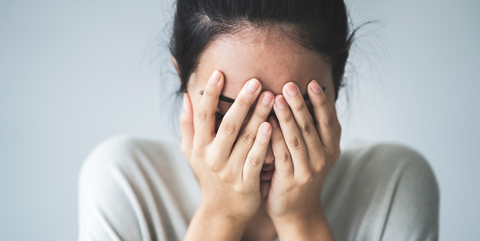Let’s take care of spring cleaning the unnecessary stress from our life.
With so many innate stressors in our society, why add self-inflicted stress to your plate? If you find yourself ruminating over past events, overthinking every future scenario, and letting the opinions of others define your worth, it may be time for a detox from unnecessary stress.
While some stressors are out of our control, others are avoidable… and self-inflicted!
Here are…..six main causes of unnecessary stress and tips on how to avoid them.
Declutter Your Space To Declutter Your Mind
If your space is messy, it’s likely your mind will follow suit. That’s right mess can cause stress, and maybe worse! Clutter may make it difficult for you to relax, lead to distraction, and may even make you feel anxious.
Fixing it by…..
Say goodbye to unnecessary stress and donate items that no longer serve you. Tidying your space can be a stressful task within itself but thinking of others can make the process a feel-good experience. Create a donation pile of books, toys, clothes, food, and even furniture. Check in with local churches, thrift stores, and charities to see how you can give life to your old items.
The Opinion Of Others
Another thing to let go of? The opinion of others. “Did I say the right thing? Are they mad at me? Does this outfit look good on me?” — our thoughts are exhausting! When we spend our energy worrying about what others will think, it creates unnecessary stress and a toxic mental mindset.
Fixing it by…..
Reevaluate who you let into your inner circle and break up with toxic relationships. This may mean letting friendships fade, separating yourself from toxic work environments, and even distancing yourself from social media.
Which leads to the next cause of stress……
The Toxic World Of Social Media
Speaking of social media… is your virtual connection causing more harm than good?
I understand it is necessary for some of us to be on it with our business’ sake. And. between social media trolls (the modern-day name for cyberbullying), the (unrealistic and unattainable) social media highlight reel, and a world of picture-perfect filtered features, simply picking up your phone could mean sacrificing your mental health.
In 2020, it was estimated that the average time spent on social media amounted to 145 minutes per day. With remote work on the rise, it’s likely this number will continue to climb.
So, in a world dependent on virtual connection, how do you protect your health and rid some of the unnecessary stress caused by social media?
Fixing it by….
Take a social media detox. Here are some suggestions!
Designate Online Hours
Sign off for the weekend or take extended social media breaks every so often. If your job and or business requires you to stay connected, create social media boundaries by designating “offline” hours. Let your co-workers and or others know you won’t be checking emails after a certain time of the day.
A Phone-Free Morning Routine
Create a morning routine that doesn’t involve immediately looking at your phone. Before you give your energy to others, take time to set your day up for success.
Limit Your Social Media Exposure Before Bed
Scrolling on your phone right before bed may disrupt your sleep cycle, further contributing to unnecessary stress.
Procrastination
While many claim to thrive under pressure, leaving tasks until the last minute may promote feelings of unnecessary stress. We get it — when you’re feeling overwhelmed, procrastination may offer temporary relief. Consider how you feel when it’s crunch time — totally stressed out.
Fixing it by…..
Time management! Developing time management strategies has been shown to decrease unnecessary stress and anxiety levels while increasing productivity. Setting clear goals, creating to-do lists, and staying organized are all strategies to improve time management.
Ruminating Over Past Events
To put it simply, we cannot change the past! By replaying past events, you churn up prior emotions and subject yourself to unnecessary stress by living through an emotional experience more than once. Research suggests ruminating over past events can significantly increase the risk for anxiety and depression — your thoughts are more powerful than you may think!
Fixing it by…..
Practice putting your attention on the present moment and focus on factors within your control. If you find yourself ruminating on past events, try adopting a meditation practice to bring your mind back to the present moment.
Planning For The Worst
Do you find yourself constantly imagining the worst-case-scenario? A single negative “what if” has the potential to spiral into a full-blown disaster… of an event that hasn’t even happened! Catastrophic thinking can induce feelings of pain, worry, and unnecessary stress. The imagination of these unrealistic situations can trigger a fight or flight response in the body, leading to increased cortisol and high levels of anxiety.
Fixing it by…..
Practicing mindfulness can put a stop to negative thinking, helping to increase feelings of self-confidence and self-worth. Meditation, journaling, and positive affirmations are great tools!
While stress is a natural part of life, we may be adding unnecessary stress without even realizing it. If you find yourself participating in any of these behaviors, it may be time to reevaluate where you’re putting your energy. Replace self-inflicted stressors with healthier habits by using these tips!
And if this is something you need additional help, structure to and accountability, reach out to me today. I can help get you on the path to a stress-free world.
Set up for FREE session today. www.talkwithliza.com


Recent Comments